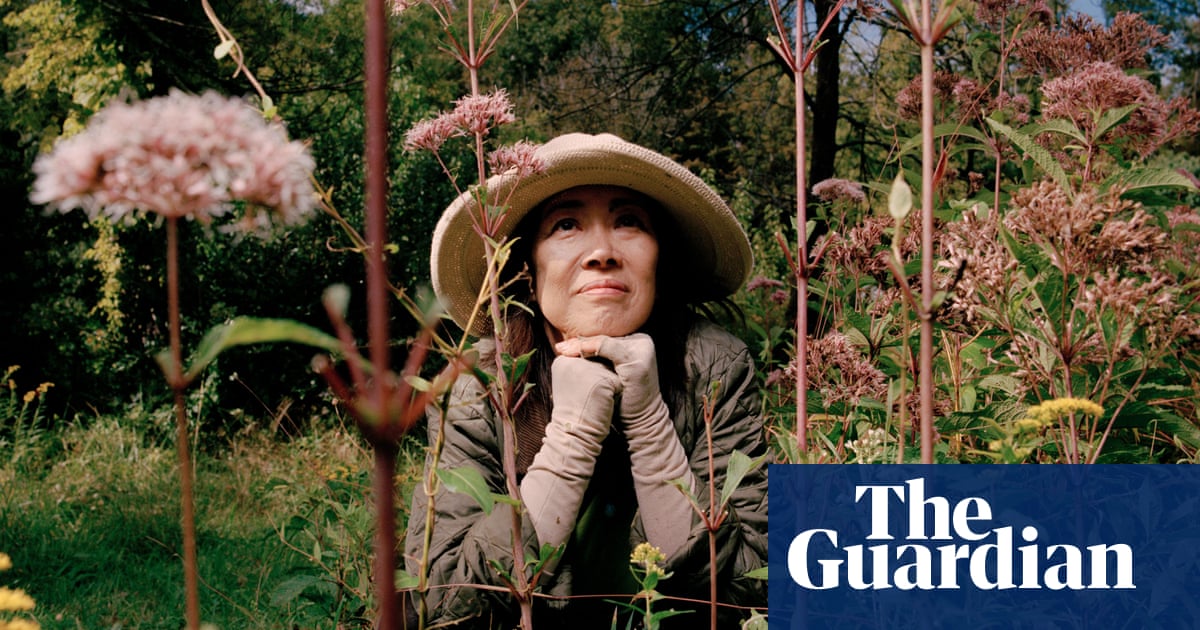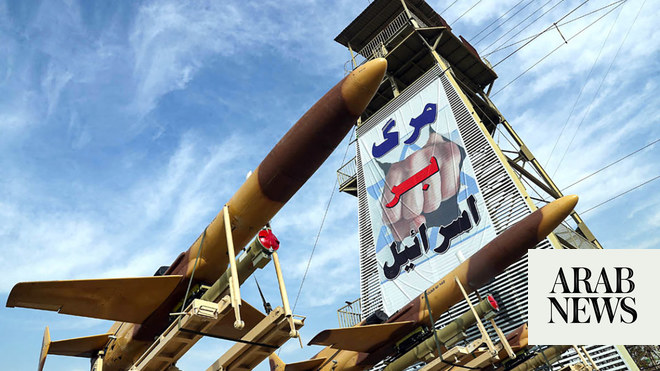
efore she became a Marvel screenwriter, Bisha K Ali was just another British standup struggling to get a gig. Before that, she was a domestic violence support worker, and before that a data scientist. And for almost all of that time, she was also completely broke – so broke, in fact, that in 2017 Ali found herself being offered an extortionate amount of money to make a Christmas card for Deborah Frances White, host of The Guilty Feminist podcast.
“Bless her,” says Ali with a laugh, thinking back to the time when she would regularly appear on the show with White. “She knew I couldn’t afford my root canal work and she was like, ‘Do you want to make a Christmas card for me and I will pay you exactly how much your root canal costs?’ And I was like, ‘Yes, Deborah, I will do that.’” Ali had just moved to Manchester to live with friends because she could no longer afford to live in London. She was living on tins of beans and contemplating selling her sofa to pay the rent.
Now, at the age of 31, things couldn’t be more different. Having spent so much of her own life shapeshifting, Ali is currently writing Ms Marvel, the upcoming Disney+ show about a metamorphosing teenage superhero from New Jersey – and the first Muslim superhero of the Marvel Cinematic Universe. In the comic the TV series is based on, our heroine Kamala Khan finds herself in possession of superpowers after an incident with the Terrigen Mist, a vapour given off by crystals discovered 25,000 years ago that turns people into monsters or superhumans.
By day, Khan fights normal, teenage obstacles like trying to fit in at school, deal with her homework and please her parents. She is in love with her best friend, but can’t date him. She is in love with the smell of bacon, but her faith won’t allow her to eat it (the comic’s first scene features Khan staring at a BLT, taking in its unholy scent). And then there are the constant micro-aggressions. “No one is going to, like, honour-kill you?” a schoolmate asks about her friend’s hijab.
Meanwhile, back in the real world, Ali’s own superpowers seem to have materialised out of nowhere, after she jumped on a flight to Los Angeles for her first big writing gig, on Mindy Kaling’s TV reboot of Four Weddings and a Funeral. “I don’t think it would be fair to the people who gave me lots of opportunities to say it came from nowhere,” says Ali, keen to credit the agents who got her over to LA and landed her a seat in the writing room for the Netflix blockbuster Sex Education. “There’s no way I could have known the show was going to be as successful as it was – and at the exact moment I ended up in LA. So that was very useful.”
Despite having no background in screenwriting, Ali got into the writers’ room through her near encyclopaedic research into the industry. She read books about the craft, prepared scripts, and even read a book about CAA, the powerful LA agency she is now with. Her Four Weddings and Funeral gig was also partly serendipitous: the team wanted someone who could write a character from Hounslow in London, which is her hometown.
Whatever, one thing’s for sure: her days of tinned beans and sofa-selling are behind her. “I have a two-bedroom apartment, which is nice. People say money can’t buy you happiness. I don’t mean this in a romantic way – but it can. In capitalism, you can buy a relative sense of security and a lack of fear about your next months’ rent.” She stops for a moment, then carefully adds: “It is trauma to be in constant fear of not being able to survive. Now I just feel this deep sense of joy. What a gift.”
However, her new gig – writing a highly anticipated live-action series – comes with its downsides. Ali has become a very private person since landing Ms Marvel. She tries to keep many of the details of her life secret, rarely doing press. She has made an exception because I “seemed cool” but I wonder if it’s also due to our similarities. Ali and I are both young, Muslim women from London who struggled to make it in our chosen careers before we moved across the pond. Both of us know the price women of colour can pay for being prominent, for simply existing in a public space.
“Any time I say something to the press,” says Ali, “I know – we both know – what to prep for.” She is trying to brush off a recent comment someone made online, about wishing they could rip her guts out. “I have to weigh up to what extent it is worthwhile, or necessary, or valuable, to do anything even slightly public.”
After Ali was announced as the Ms Marvel showrunner, journalists began pondering aloud how such an inexperienced writer landed such a coveted job. YouTube videos were dedicated to slagging her off. People trawled through her social media. One particular comment, in which Ali said women “can burn shit to the ground” and rebuild it into an “anti-capitalist utopia” caused a mini-storm, as did her tweets about Nigel Farage being doused in a milkshake last year. “[I am] not interested,” she said, “in the voices demanding empathy for fascists on the receiving end of milkshakes.” All of which led to accusations of her being anti-white.
Ali locked her social media accounts before going into hiding for a while. But now she has a simpler safety plan for when these things happen: “Just switch it all off, innit. Switch it off until people get bored.”
Hopefully, it will be good training for writing her new character, an underdog who spends a lot of her life in hiding. Like many comic heroes, Ms Marvel resonates with anyone whose ever felt left out. Kamala Khan is not nerdy, lanky and poor like Peter Parker/Spider-Man, nor does she move from being bland in the daytime to civilisation’s only hope by night, like Clark Kent/Superman. But Khan doesn’t fit in. She navigates multiple identities as the child of Pakistani immigrants, a Muslim who constantly finds herself surrounded by temptation as she is trying to craft her own identity.
If becoming a superhero doesn’t make her life less simple, it does at least give her a sense of who she is. When Khan first realises she can alter her shape, she instinctively takes the form of her hero – the blonde, caucasian Captain Marvel – but quickly realises she has made a mistake. Later, she develops a more fitting alter-ego, designing an outfit from a burkini her mom gave her, blended with the Captain Marvel costume.
As the series is still a long way from finished, Ali can’t talk about any of this right now: she is “NDA’d up to the eyeballs”. She can’t even comment on whetherthe casting of newcomer Iman Vellani made her emotional. As we talk, she’s sitting in her videogaming chair, where she spends a lot of time playing the shoot ’em up Overwatch. It’s in the corner of a room full of books spilling out of boxes and plants fighting for space. Ali has been awake all night, apparently, nervous about this interview. Just before we began, she stuffed a banana into her mouth and played the Hamilton musical’s soundtrack at full blast to get over her anxiety. “It helps me be in my body,” she says.
We talk about her comedy career, about the time she went on stage with the entire cast of Goodness Gracious Me – a career highlight – and how her routines tried to show how the personal was always political. “Trying to make all of society’s expectations of women funny is hard work,” Ali once said. But she did a good job. On The Guilty Feminist, where she was frequently the only host of colour, Ali skilfully poked fun at how her race, class and gender sometimes conspired against her feminist values. She was once mistaken for Mindy Kaling, whom she looks nothing like, but was flattered by the comparison and so didn’t correct the error.
Comedy is clearly still close to her heart, though, and today one thing is bothering her immensely: the British government’s plan to “help” struggling creatives during the pandemic, which has resulted in huge numbers of job losses. “Look,” she says, “there are always problems with any set of the arts. They are elitist and white as hell. But I love so many people in the comedy industry. In the past year, their livelihoods – which they have been building for years in a brutal industry – have been wiped out. People who had their year booked out, all the gigs are gone.” At each syllable, she nods her head for emphasis.
“I feel incensed that there has been no government support for comedy especially. The arts bring in billions – millions per hour. Everyone is hurting, I get it, and there is like a boo-hoo mentality around the arts. Fuck that! You watched television all day long for the past six months and you know it! The idea that we don’t bring value to this society really rankles me.”
Ali is laughing by this point, but the subject clearly hits a nerve. She starts hitting her fist in her hand. “We worked so hard to open all these fucking doors! People of colour, people who were not included in this field – and I felt like we were at a relatively exciting point where I could be like, ‘Oh shit, look how diverse that lineup is. There’s so much great young talent coming through.’ And it’s stopped dead. It is very personal.”
We are speaking just before Donald Trump’s electoral defeat. I mention my surprise that Ali can stomach keeping up with the news on both sides of the Atlantic. “I am in two thunder domes,” she says. “I feel compressed constantly by this barrage of dogshit leadership. People are dying, industries are dying, and both countries’ leaders are going for joy rides in a pandemic. I am just – oof. Wallahi.”
She is laughing, but with her head in her hands. Ms Marvel would have perhaps already resorted to violence: her signature move involves enlarging her fists and whacking despotic opponents. But Ali’s own superpower, laughing in the face of adversity, is pretty appealing right now.












